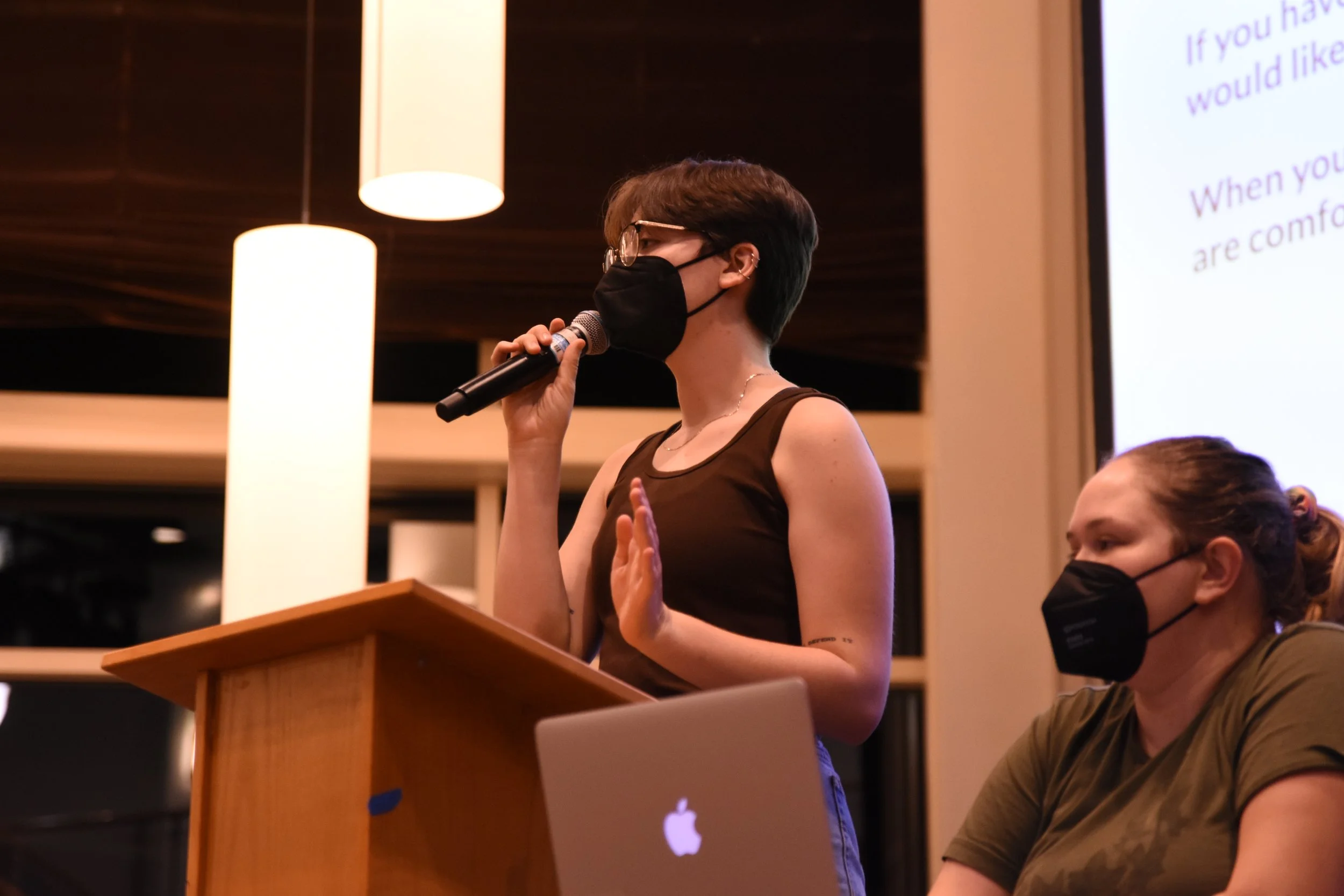The most recent senate meeting comes at a tenuous time for Mount Holyoke's campus as many students are dissatisfied with COVID-19 protocols. Photo by Tzav Harrel '24.
By Tara Monastesse ’25
News Editor
The Nov. 1 senate meeting began with a land acknowledgment from Chair of Halls Serynn Nowlin ’25, as well as an announcement that a donation link would soon be made available to support members of Indigenous nations. The evening’s agenda featured E-Board updates, as well as open-floor discussion between commission members and senators. This meeting was the first of the academic year to follow a typical senate schedule, as most of the previous meeting was dedicated to a Q&A session with Health Services Medical Director Cheryl A. Flynn.
It was announced that Interim President Dr. Beverly Daniel Tatum, Dean of the College Amber Douglas and Provost and Dean of Faculty Lisa Sullivan would be in attendance at the next senate meeting to discuss the College’s COVID-19 protocol with students. Shortly after the meeting, a Google Form for submitting questions for the session was distributed to students via email.
Additionally, Chair of Senate EJ Jankovic ’23 announced that submissions for the next installment of Newsflush, an Student Government Association newsletter distributed by hall senators in residence-hall bathrooms across campus, will be open until Nov. 11.
The floor was then opened to senator announcements about various events on campus. Notable ones included the 2022 Fall Arts & Crafts Fair hosted by the Art History Student Association and Art Society at noon on Nov. 4 in the Great Room, a panel to be hosted by Asian American Students in Action on Asian American student activism on Nov. 9 at 5:30 p.m. in Hooker Auditorium, a Mixed-Identity Student Collective game night on Nov. 11 at 7 p.m. and a Big and Little Meet and Greet beginning on Nov. 13 hosted by the Class of 2024 Board. An open-floor period for students to express questions and concerns on behalf of themselves or the organizations they represent followed these announcements.
Nina Baran ’25, senator for the Jewish Student Union, relayed student concerns that parking on campus is severely limited to the point that students — especially those living in Dickinson Hall — cannot park outside of their own residence halls. Jankovic responded by noting that long-term plans to fix student parking availability on campus will likely take five to 10 years, but in the short term, students who are infrequent drivers can store their cars in the more spacious Ham and Macgregor Halls lot if able. Jankovic noted that while theoretically only enough parking passes are sold as there are available spaces, the system is only sustainable if outside visitors do not occupy spots reserved for students and if cars are evenly distributed across each campus parking lot.
Additionally, student-athletes expressed concerns that the dining hall hours are incompatible with their practice schedules, often resulting in an inability to access substantial dinnertime meals when they arrive at Blanchard Hall in the late evening. Another student echoed this concern, noting that a friend of theirs is unable to eat in the evenings after the Baraka-Halal station closes.
SGA President Maille Romulus ’24 noted that food shortages and MHC-specific staffing issues have been recurring since the beginning of the pandemic, and working toward better dining resources for students has been an ongoing conversation.
The meeting concluded with commission members introducing themselves to senators and discussing concerns related to their representative issues.

